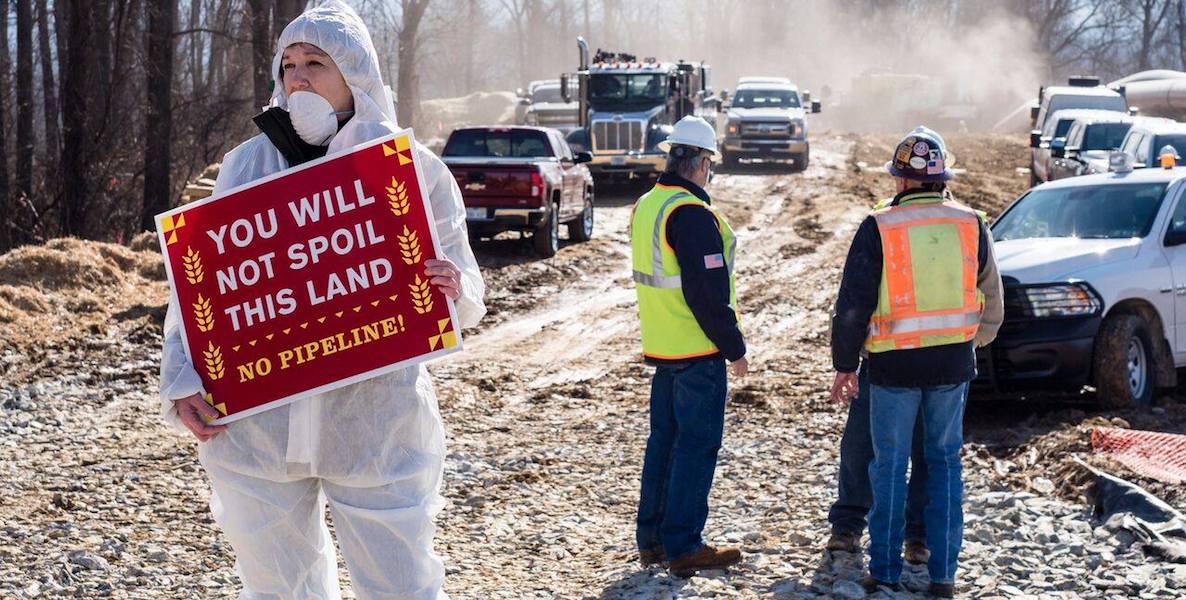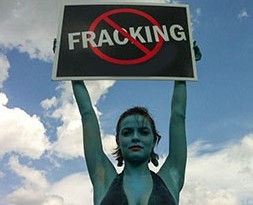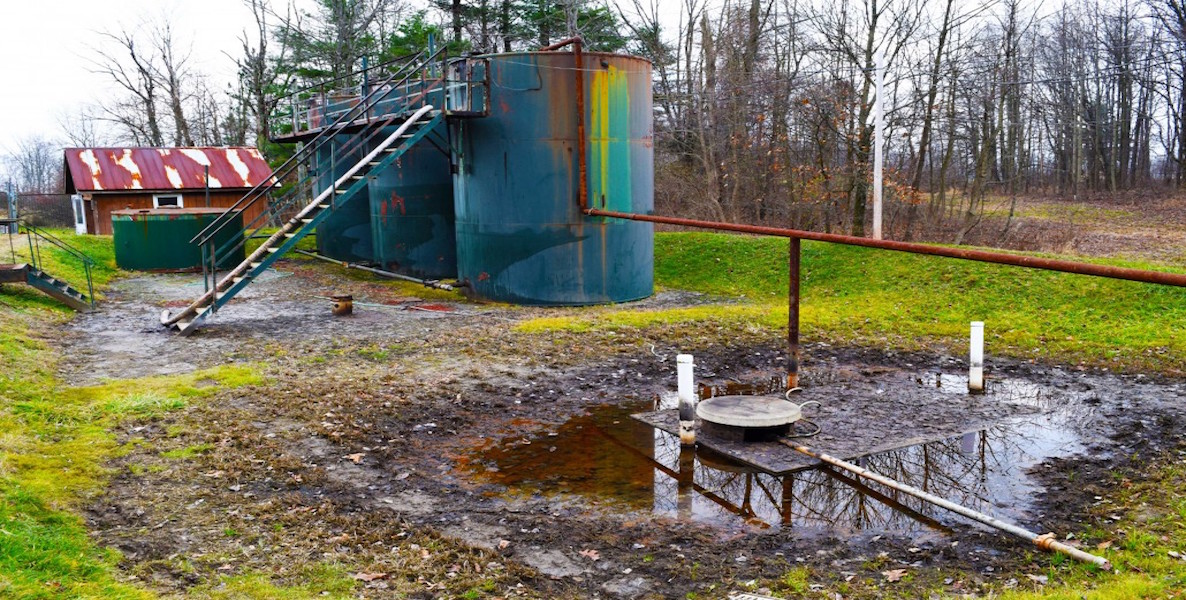The prize-winning poet and journalist Eliza Griswold’s new book Amity and Prosperity: One Family and the Fracturing of America, which releases today, tells a story of America that many of us in metropolises never think about: The way rural America bears the brunt of our urban energy consumption, and the frustration, illness and animosity that often ensues.

Fracking—the process of removing natural gas from underground rocks—came to Amity, Pennsylvania, a small town in the southwest corner of the state as a much-needed answer to poverty and unemployment. That is until resident Stacey Hanley noticed first that her neighbor’s pets began to die, and then that her own family members began contracting a strange illness.
Griswold, who spent seven years immersed in Amity, tells the story of Hanley, an unusual activist in the face of injustice, who refused to back down when fracking companies insisted that nothing was wrong. She launched her own investigation that uncovered corporate wrongdoing, and then brought the story into the national spotlight.
Griswold, who will appear at The Free Library this evening, spoke to The Citizen about her experience in Amity, the state of rural America and the power of individual activism.
PB: What drew you to this story?
EG: Really, what drew me to the story was the idea of public poverty in America. As you can read in the end of the book, I was in Nigeria when a bridge collapsed there some years ago and it was a couple of weeks after a bridge in Minneapolis had collapsed––I-35W, that killed 13 people. And I decided to return. Most of my career has been in Africa, or Asia, Iraq, Afghanistan. But I decided to come back to the United States and look at some of the problems that we are facing as a nation.
PB: What about your career and experience abroad influenced this investigation?
EG: I wrote an article about exactly this issue, something we have, since the 90’s, ![]() looked at in much of the world: something called the “resource curse.” Why is it that people who live on land richest in natural resources tend to be some of the poorest? That’s an idea that we don’t usually look at in America. And that applies here in Appalachia in many ways. I wanted to take a look at what it means on the ground.
looked at in much of the world: something called the “resource curse.” Why is it that people who live on land richest in natural resources tend to be some of the poorest? That’s an idea that we don’t usually look at in America. And that applies here in Appalachia in many ways. I wanted to take a look at what it means on the ground.
PB: Were you embedded real time with the people of Amity, Pennsylvania while writing this story, or did you come back later to report on this story?
EG: I spent seven years doing what is called immersion reporting, which is really when you just spend so much time with people that they forget you are there. So, it was 37 trips, over seven years, of watching this mystery unfold in these people’s lives.
PB: What was the most shocking thing you learned during your time in Amity?
EG: Probably, how it is that rural Americans pay for the energy appetites of urban Americans, and we don’t even know it. We, who live in cities, often don’t think about what it takes to flick on our lights but people who live in rural America pay those costs in very real ways every day.
PB: What about Stacey was different from the other people you met while reporting?
EG: Stacey had no interest in becoming a poster child for any kind of cause. She only wanted to know what was wrong with her kids. She wasn’t ideologically predisposed; she was not against fracking from the beginning. She didn’t have some liberal agenda against fracking that she was hacking away at.
PB: What’s most interesting to us at The Citizen is the idea of regular people becoming engaged. This is a story of a regular person who becomes an activist—what can you tell us about that aspect of engagement?
Rural Americans pay for the energy appetites of urban Americans, and we don’t even know it.
EG: So Stacey became a citizen hero in Trump’s America, right? Her whole family voted for Trump––this is Trump country. And yet, given what she thought of this industry, and how it impacted her family and her decision to leave her farm, she decided to take a very risky and unpopular stance.
PB: What do you see the power of the individual?
EG: The power of the individual is all. That’s really the truth of it. I mean, without people like Stacey speaking up, having the confidence and the courage to speak up against what was wrong, we would have no idea, first hand, what it was like to live in America’s energy field.
PB: Is there some sort of irony in that both Amity and Prosperity are actual towns in Pennsylvania? Does this somehow speak to the state of rural America?
EG: Very much so. This is a book about why rural Americans are so disenfranchised and angry at urban Americans. Much more so than it is a book about fracking.
PB: What do you hope people learn from reading this book?
EG: I hope they will learn that the costs of American energy are very real and they are paid by rural Americans every day.
Tuesday, June 12, 7:30 pm, Free, Free Library of Philadelphia Parkway Central Library, 1901 Vine Street.
Photo via Fractracker




